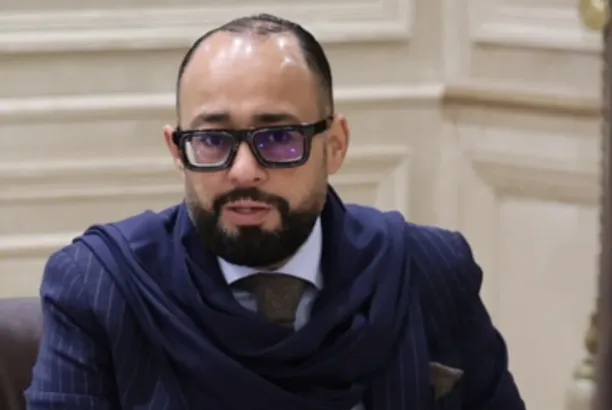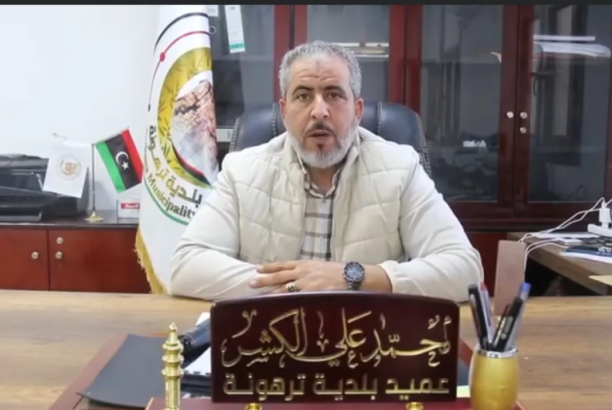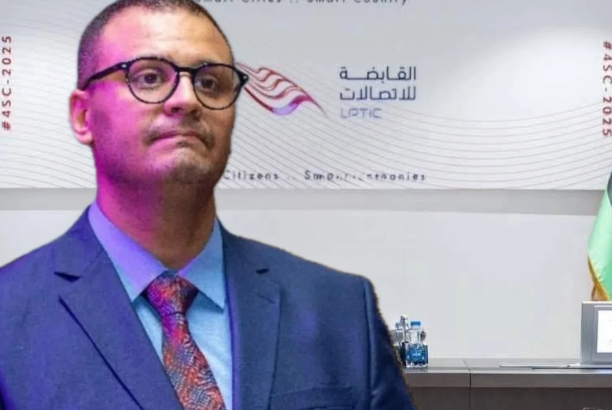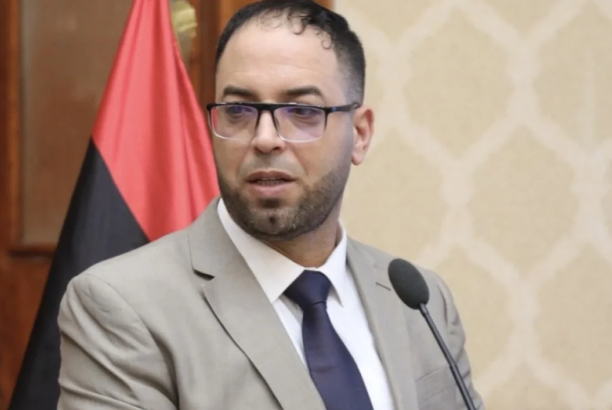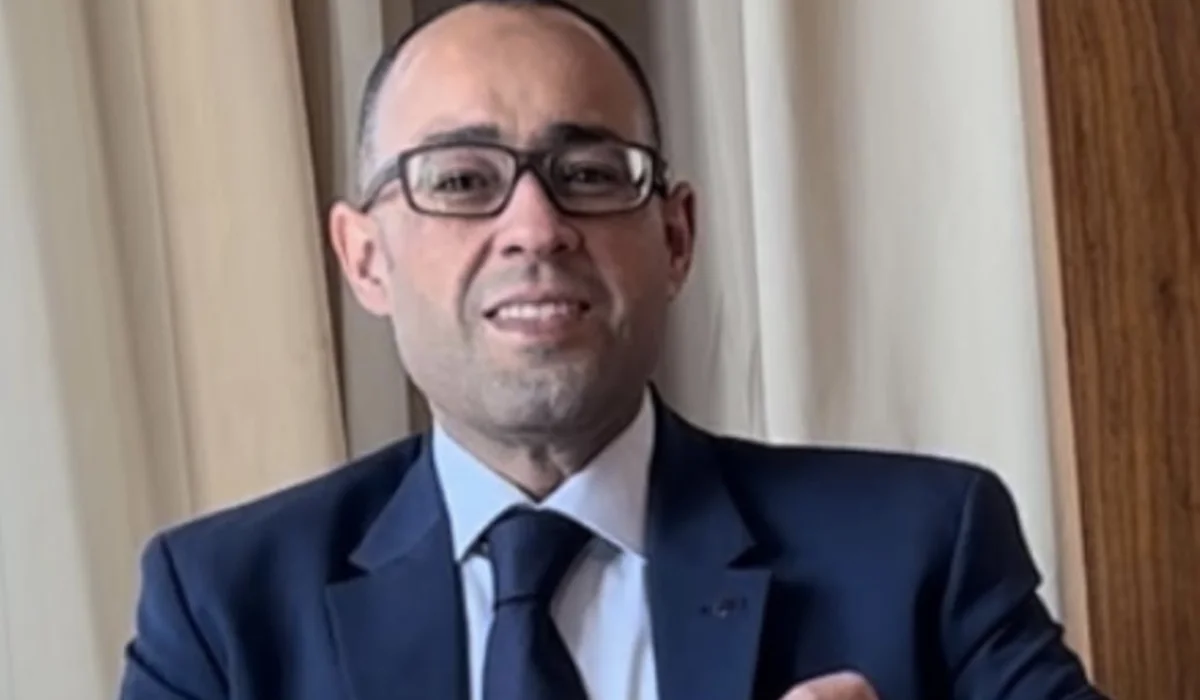
| Meeting Of The Week
Learn About the “English Language Education Improvement Initiative”.. An Interview with Adviser Mostafa Al-Manea, Head of the Executive Team for Prime Minister’s Initiatives and Strategic Projects
Mr. Adviser, welcome to Sada Economic platform. We are pleased to learn from you about the English Language Education Improvement Initiative, for which a partnership agreement was signed today in Tripoli?
It is an honor to be your guest, and I extend my greetings to your audience.
The English Language Education Improvement Initiative, launched today by Eng. Abdulhamid Dbeibeh, Prime Minister of the Government of National Unity, in partnership with the British Council, comes as part of a package of initiatives and strategic projects adopted by the Government within its Return of Life plan in the education sector. Through this initiative, the government seeks to bring about a fundamental and sustainable transformation in the quality of educational outcomes, equipping students with language skills that enable them to engage with the world, compete in national and international labor markets, and enhance their knowledge and entrepreneurial capabilities.
The partnership agreement was signed today in a high-level ceremony attended by Prime Minister Dbeibeh, the UK Minister for the Middle East and North Africa at the FCDO, MP Hamish Nicholas Falconer, UK Ambassador to Libya Martin Andrew Longden, Libya’s Acting Minister of Labor Ali Al-Abed, and the Executive Director of the British Council in Libya, Faisal Al-Najeh. This presence reflects the importance of the initiative and strengthens its credibility and commitment to success.
What are the goals and pillars of the initiative?
The initiative is built on four main pillars:
- Improving English teaching and learning in schools and universities through revising and developing curricula and learning methods.
- Enhancing pre-service teacher training and capacity-building for current educators.
- Strengthening the capacity of educational inspectors in English language education.
- Preparing trainers within the education sector based on the Cascade Model of training.
Why partner with the British Council?
Cooperation with the British Council—a globally renowned institution with decades of expertise in education and culture—reflects the government’s commitment to adopting best international practices. The initiative was carefully designed to align with the Libyan context, considering teacher capacities and the infrastructure of educational institutions.
Under the agreement, the British Council will conduct comprehensive evaluations of current curricula, teacher training, and inspection systems, with the goal of achieving the initiative’s targets.
What guarantees success for this initiative?
The Government of National Unity has adopted measurable and trackable Key Performance Indicators (KPIs), such as gap analysis tests, teacher assessment tests, the establishment of three model training centers in the first phase, training qualified trainers to ensure sustainability, developing a framework for educational inspectors’ priorities in English, and providing technological infrastructure (devices, teaching aids, internet connectivity) to ensure nationwide access. Student progress in English will also be measured.
A key performance indicator will be Libya’s advancement in the EF English Proficiency Index, where it ranked 112th in 2024, within the “Very Low Proficiency” category out of 116 countries.
What is the economic impact of the initiative?
Undoubtedly, economy and knowledge go hand in hand. Such a developmental initiative, particularly in Libya’s context, will have an economic impact far beyond language learning alone. English is the language of international business and communication with foreign investors. Improving English proficiency will increase investor confidence, reduce entry costs to the Libyan market, and provide a workforce capable of effective communication—creating a more attractive investment environment.
Moreover, English proficiency is linked to the knowledge economy, entrepreneurship, artificial intelligence, and digital transformation—all essential to building a competitive, open national economy. Education outcomes and the labor market are inseparably connected.
Were international experiences considered in designing the initiative?
Yes. The initiative team studied successful models that tackled the roots of the challenge in improving English education. These include the UAE and Qatar’s adoption of modern curricula to internationalize education in public schools, Rwanda’s success in training 30,000 teachers in five years, Jordan’s use of EF EPI standards for inspector training, and India’s widespread implementation of the Cascade Model.
The British Council’s extensive experience in over 100 countries also strengthens the initiative.
Thank you for accepting our invitation.
Thank you for following such an important initiative, which reflects the Government of National Unity’s commitment to rebuilding Libya’s educational system on modern foundations. It lays the cornerstone for a true national transformation in English education, backed by international partnership, ensuring a more advanced and open future for our students, and empowering our dedicated teachers.
About Adviser Mostafa Al-Manea:
A Libyan lawyer and legal/economic expert with over 23 years of experience, he has worked with investment institutions, sovereign funds, and banks both inside and outside Libya. He has served as an expert for international research centers, lecturer and trainer with the American Bar Association and the European Lawyers Association, adviser to the Central Bank of Libya, and board member of the Libyan Investment Authority and the Libyan Foreign Bank. He has represented Libya in World Bank and IMF meetings, and today he leads the Executive Team for the Prime Minister’s Initiatives and Strategic Projects. He has published numerous research papers and articles in Arab, American, and European newspapers.


